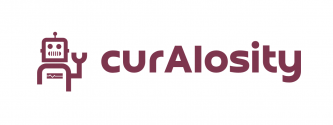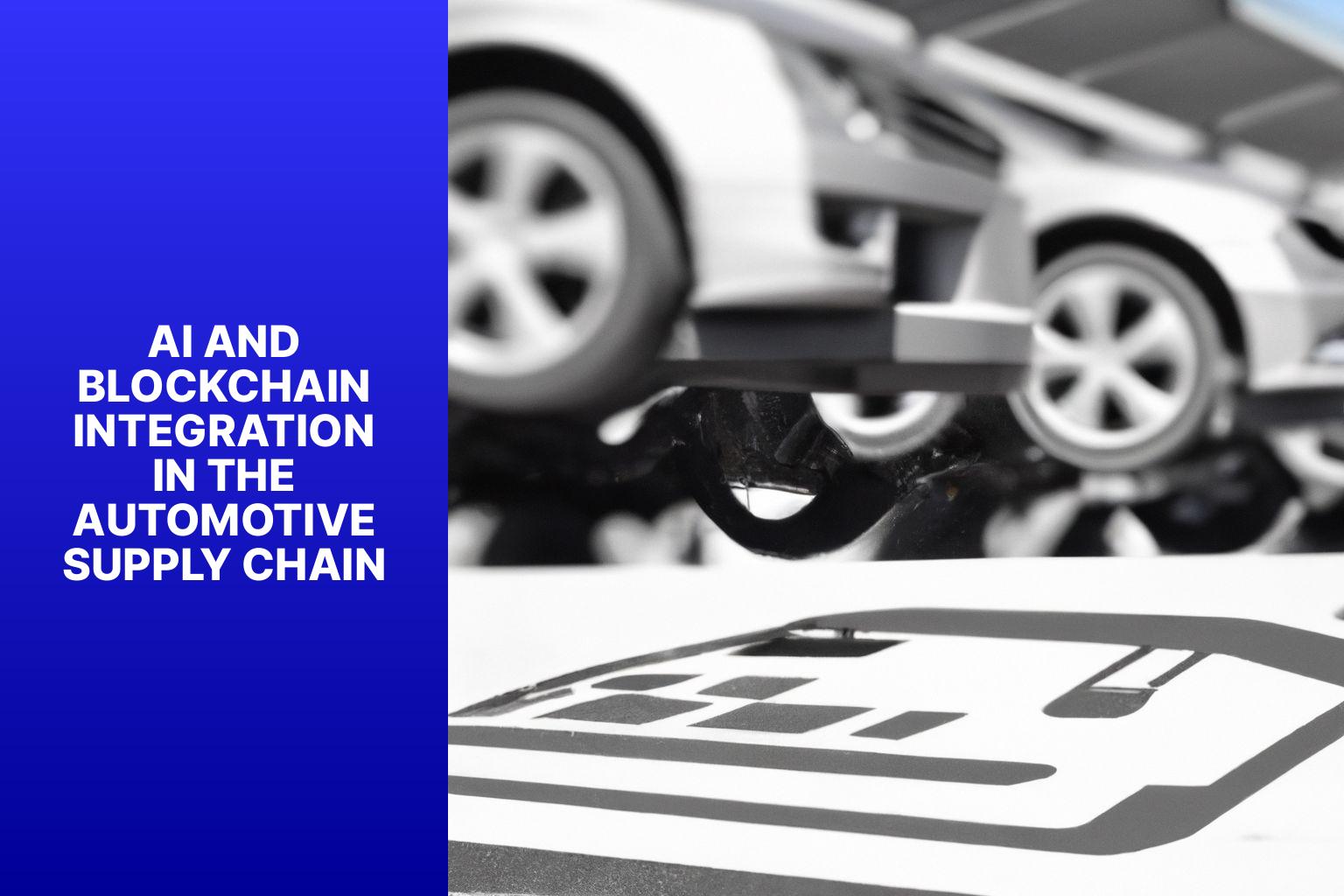Table of Contents
- 1 Benefits of AI and Blockchain Integration in the Automotive Supply Chain
- 2 Challenges and Considerations of AI and Blockchain Integration
- 3 Case Studies of Successful AI and Blockchain Integration in the Automotive Supply Chain
- 4 Future Outlook and Potential Applications
- 5 Conclusion – AI and Blockchain Integration in the Automotive Supply Chain
- 6 Frequently Asked Questions
AI and Blockchain Integration in the Automotive Supply Chain. AI and blockchain have transformed the automotive supply chain. This article looks at the revolutionary effects of this combo. AI and Blockchain Integration in the Automotive Supply Chain.
Tech has changed the way industries work; the car sector is no different. It faces challenges like fake parts, info asymmetry, and supply chain issues. AI and blockchain integration provides a possible solution. AI and Blockchain Integration in the Automotive Supply Chain.
AI algorithms can crunch data in real-time. It aids makers in making decisions, from predictive maintenance to forecasting demand. So, it can revolutionize the entire auto supply chain.
Blockchain adds an extra layer of security and transparency. Transactions are recorded on a decentralized ledger, preventing data manipulation or fraud. It enables smart contracts that execute agreements between parties without intermediaries, cutting costs and increasing trust.
An example of the potential: a car maker had fake spare parts entering its supply chain. AI-based tech, plus blockchain’s traceability features, helped spot and remove counterfeit parts. It ensured customer safety and saved millions, avoiding costly recalls. AI and Blockchain Integration in the Automotive Supply Chain.
Benefits of AI and Blockchain Integration in the Automotive Supply Chain
AI and Blockchain integration in the automotive supply chain bring several advantages. A major one is improved traceability and transparency. Blockchain records and verifies every transaction, preventing fraud and unauthorized activities. AI technologies boost operational efficiencies by analyzing data from production, inventory, and logistics. Predictive analytics can adjust inventory levels to minimize stockouts or excess inventory. AI-powered predictive maintenance systems detect potential failures or malfunctions. AI algorithms identify inefficiencies and areas for improvement in energy consumption or emissions reduction. AI-powered chatbots and virtual assistants improve customer experience by providing support for orders and deliveries. These technologies positively impact the industry with increased traceability, operational efficiencies, predictive maintenance capabilities, sustainability improvements, and enhanced customer experience. To reap these benefits, it is crucial to invest in robust cybersecurity measures.
Challenges and Considerations of AI and Blockchain Integration
Integrating AI and blockchain into the automotive supply chain has its difficulties. Data security, compatibility issues, and standardized protocols must be taken into account. AI and Blockchain Integration in the Automotive Supply Chain. To comprehend this better, let’s check out the following table!
| Challenge | Description |
|---|---|
| Data Security | Keeping data private & intact |
| Compatibility | Making AI & blockchain work with existing systems |
| Standardization | Creating uniform protocols across the supply chain |
Data security is a key priority. Protecting sensitive info is paramount when integrating AI and blockchain.
Compatibility also presents a challenge. We must find ways to integrate these new technologies into existing systems.
Standardization is a must. It can help streamline processes and minimize disruptions by creating uniform protocols across entities.
Case Studies of Successful AI and Blockchain Integration in the Automotive Supply Chain
In the ever-evolving automotive supply chain world, AI and blockchain technology integration has been a game-changer.
Other details add to AI and blockchain integration success in automotive supply chains. Companies report enhanced visibility, improved traceability, and increased efficiency. AI also allows better forecasting and demand planning, leading to optimized inventory levels and cost reduction.
Blockchain technology increases data security and trust. It provides immutability and transparency throughout the supply chain, enabling better quality control. It also helps identify and resolve issues or defects faster.
Companies leveraging AI and blockchain integration in their automotive supply chains are reaping substantial benefits. They gain a competitive edge with improved efficiency, cost reduction, and better customer satisfaction. Leverage these innovative solutions to revolutionize your automotive supply chain today! Don’t miss out on this transformative trend.
Future Outlook and Potential Applications
The potential of AI and blockchain in the automotive supply chain is promising! This integration could revolutionize the industry by increasing transparency, efficiency, and security.
Traceability is improved with the use of blockchain. It allows suppliers, makers, and buyers to track every step of the supply chain process in real-time. This helps find bottlenecks & delays, as well as accountability.
Additionally, AI algorithms can analyze a lot of data from the supply chain to predict demand accurately. This lets manufacturers plan production better and reduce waste.
AI sensors in vehicles give manufacturers valuable data on the car’s performance, usage, and maintenance. This info is stored securely on a blockchain network and authorized stakeholders can access it.
AI algorithms can make informed decisions based on this data for safety features like collision avoidance & adaptive cruise control. AI also assists in autonomous driving by processing real-time data from sensors.
Conclusion – AI and Blockchain Integration in the Automotive Supply Chain
AI and blockchain integration in the automotive supply chain bring many advantages. Transparency, security, and efficiency are improved. AI enables predictive analytics to optimize inventory and demand forecasting. Blockchain provides a tamper-proof ledger that verifies transactions. Automating manual tasks, reducing errors, and streamlining operations revolutionizes the industry.
Real-time tracking of products and components is enabled. This helps manufacturers quickly identify and fix issues, reducing disruption and delays. Consumers gain access to info about origin, quality, and history of their vehicles.
AI and blockchain integration is powerful. A major car manufacturing company implemented AI algorithms to analyze data in real-time. Efficiency and cost savings were improved. Integrating blockchain into their supply chain management system ensured traceability from raw materials to final product delivery. Trust among stakeholders was enhanced and counterfeiting risks were minimized.
Frequently Asked Questions
Q: What is AI and Blockchain integration in the automotive supply chain?
A: AI and Blockchain integration in the automotive supply chain involves the use of artificial intelligence and blockchain technology to optimize and secure various processes within the automotive industry’s supply chain. It combines AI’s ability to analyze and process data with blockchain’s distributed ledger system to enhance efficiency, transparency, and trustworthiness in supply chain management.
Q: What are the benefits of AI and Blockchain integration in the automotive supply chain?
A: The integration of AI and Blockchain in the automotive supply chain offers several benefits such as:
- Enhanced transparency and traceability of products and components.
- Improved supply chain visibility and real-time monitoring.
- Reduced fraud and counterfeit products.
- Streamlined inventory and logistics management.
- Efficient product recalls and warranties.
- Optimized demand forecasting and inventory planning.
Q: How does AI contribute to the integration in the automotive supply chain?
A: AI plays a crucial role in the integration by leveraging machine learning algorithms to process vast amounts of supply chain data. It supports tasks such as demand forecasting, inventory optimization, predictive maintenance, and route optimization. AI algorithms can analyze historical data, identify patterns, and make accurate predictions, helping to streamline operations, reduce costs, and improve overall efficiency in the supply chain.
Q: What role does blockchain technology play in the integration?
A: Blockchain technology provides a decentralized and immutable ledger that can record every transaction and event within the supply chain. It ensures transparency, security, and traceability of products, components, and transactions. Blockchain enables stakeholders to securely share data and verify information, reducing the risk of fraud, counterfeiting, and unauthorized changes. It also improves the efficiency of supply chain processes by automating smart contracts and eliminating intermediaries.
Q: How can AI and Blockchain integration benefit automotive manufacturers?
A: The integration of AI and Blockchain can benefit automotive manufacturers by optimizing production processes, reducing operational costs, and enhancing customer satisfaction. It enables manufacturers to gain real-time visibility into the supply chain, allowing them to identify bottlenecks, optimize inventory levels, and make data-driven decisions. Additionally, by ensuring the authenticity of parts and components, it helps prevent counterfeiting and improves product quality, leading to increased customer trust and loyalty.
Q: Are there any challenges to implementing AI and Blockchain integration in the automotive supply chain?
A: Yes, there are challenges to implementing AI and Blockchain integration in the automotive supply chain. Some of these challenges include:
- Integration complexity and cost.
- Data privacy and security concerns.
- Resistance to change from industry stakeholders.
- Regulatory and legal considerations.
- Technical compatibility issues.

